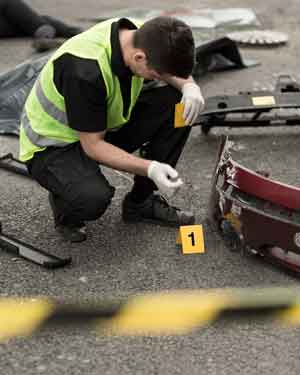
By Chris Lennard and Anne Wallace
Forensic science plays an increasingly important role in contemporary trials. This is particularly the case in modern-day terrorist trials, where the link between the accused and the crime is likely to be the major point of contention and the one in which forensic science is most likely be engaged.
This chapter examines:
- How forensic science is affected by the growth in investigation and prosecution of terrorism offences in Australia and overseas
- What forensic science contributes to the investigation and trial process
- The implications that terrorism has for the way forensic science agencies carry out their roles.
Specifically, it looks at:
- The nature of forensics evidence – Its role in investigations and a criminal trial
- The legal framework in Australia and overseas surrounding expert witnesses.
- Case studies – the Bali bombings case, Benbrika and Ors v The Queen
- Forensic science in the age of terror
- Improving the quality of expert evidence
- Increased role of forensics staff in intelligence and investigation
- Increasing internationalisation – cooperation and collaboration between agencies in different countries.
The chapter is useful for::
- Students, teachers, researchers – in Law and Psychology
- Forensic scientists and psychologists
- Practitioners of law and criminal justice
- Police, national security officers and court officials
- Journalists.
This chapter is in the book Juries, Science and Popular Culture in the Age of Terror
Buy the chapter